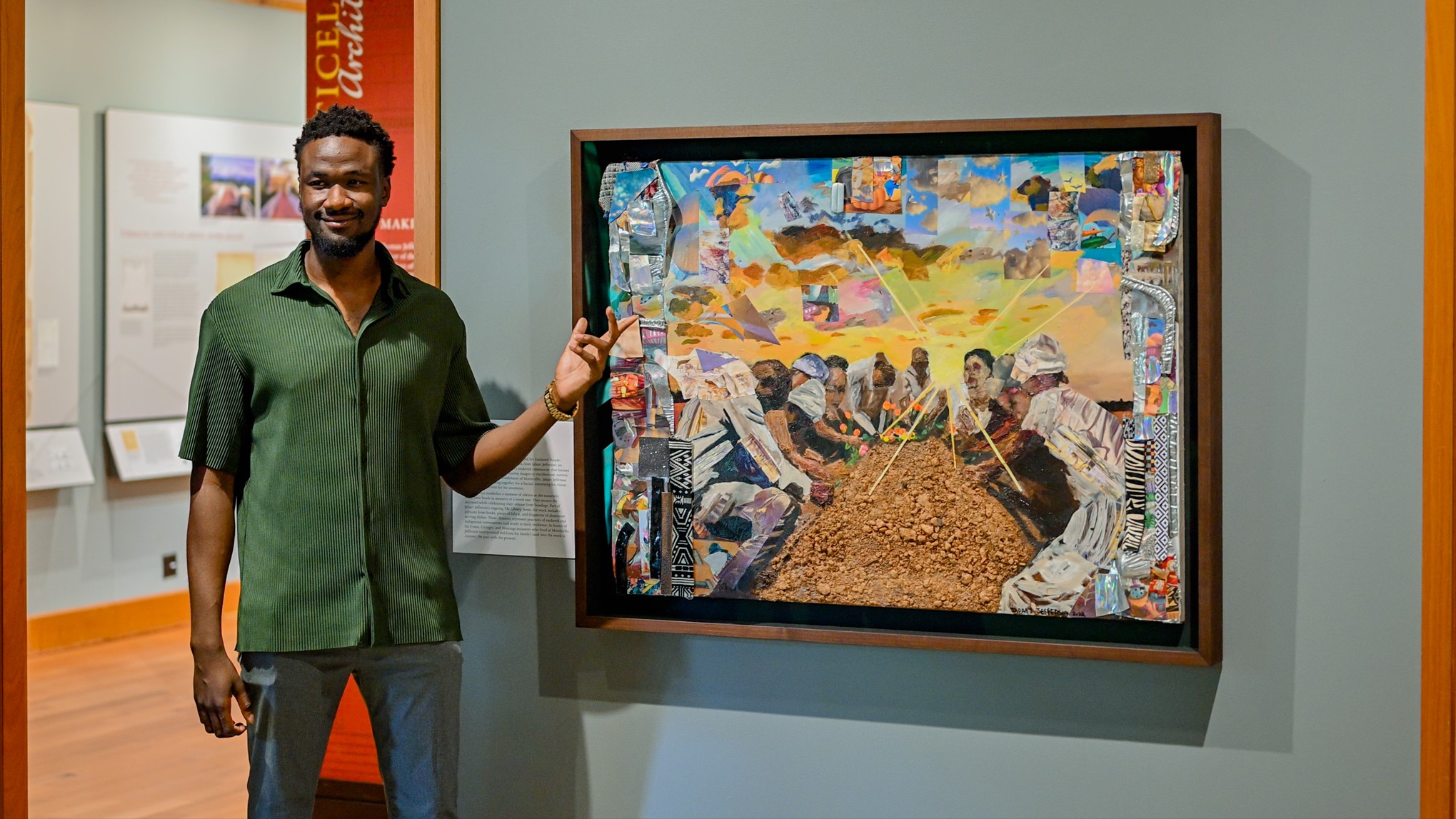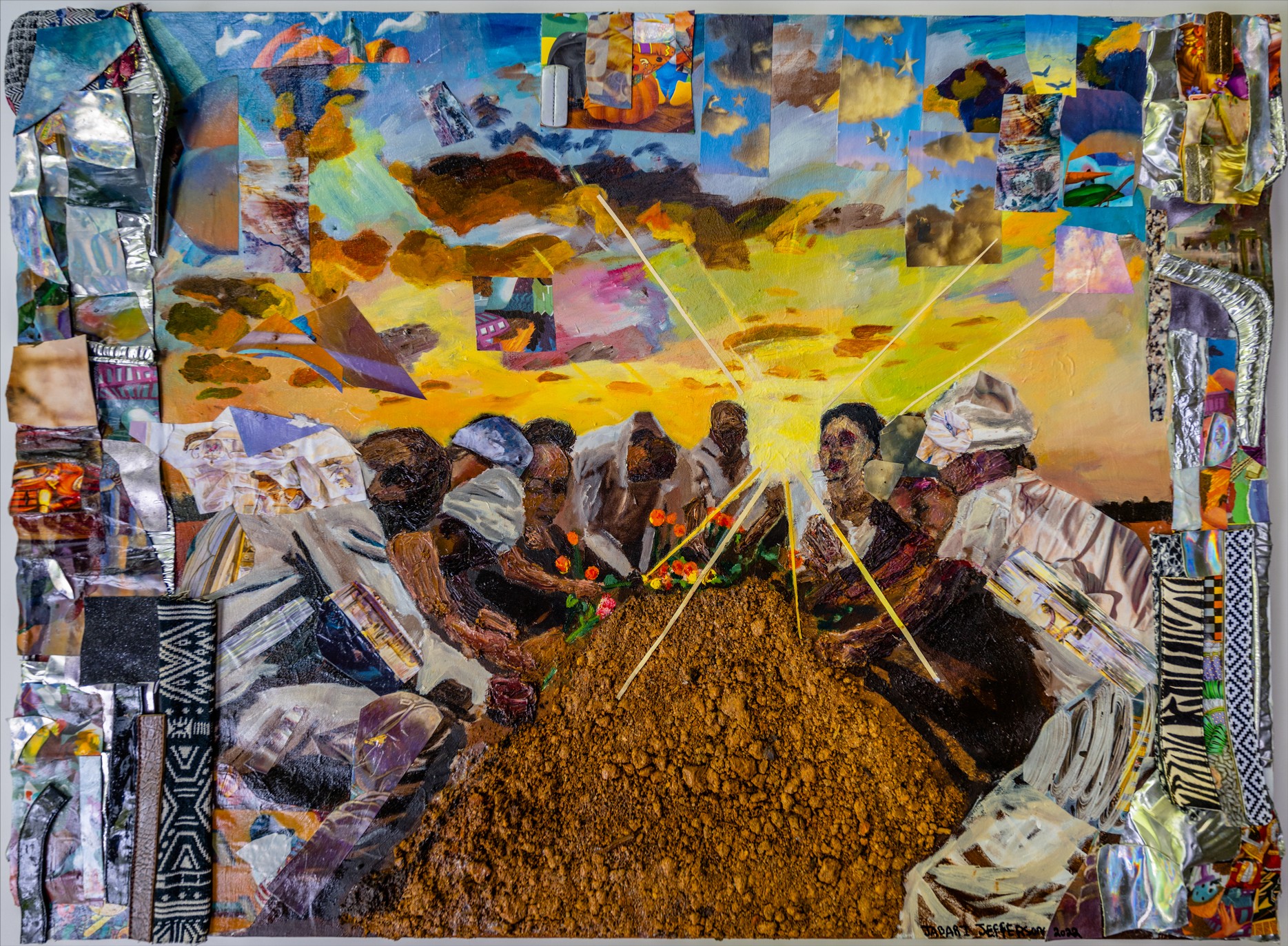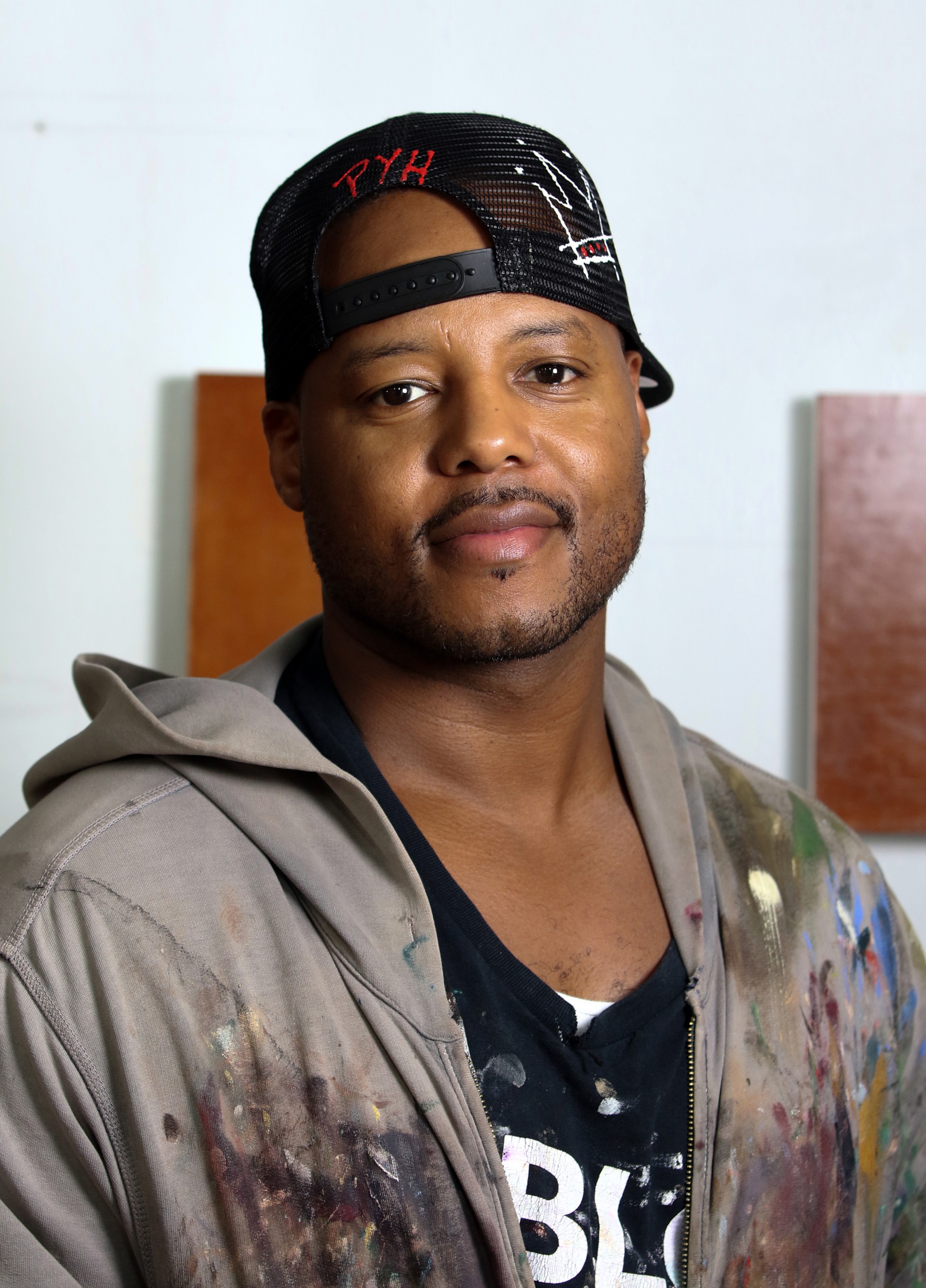As part of "Ascendant" programming, artwork from award-winning artists Titus Kaphar and Jabari Jefferson will be on display at Monticello, June 17 - July 10. Learn more about each piece and where they can be viewed below.
Artwork
A Moment of Silence
Jabari C. Jefferson, 2022
Mixed media on canvas
46 x 36 x 1.5 inches
On view in the Robert H. and Clarice Smith Gallery at the David M. Rubenstein Visitor Center, June 17 - July 10
Titus Kaphar, 2022
Titus Kaphar created three commissioned pieces for "Ascendant." On view in the Michelle Smith Gallery at the David M. Rubenstein Visitor Center, June 17 - July 10
Page 4 of Jefferson's "Farm Book," January 1774, Goliath, Hercules, Jupiter, Gill, Fanny, Ned, Sucky, Frankey, Gill, Nell, Bella, Charles, Jenny, Betty, June, Toby, Duna (sic), Cate, Hannah, Rachael, George, Ursula, George, Bagwell, Archy, Frank, Bett, Scilla, ?
Titus Kaphar, 2018
Oil and tar on canvas
60” x 48”
On view in the Parlor inside the house, June 17 - June 20
On view in the Michelle Smith Gallery at the David M. Rubenstein Visitor Center, June 21 - July 10
The Fight for Remembrance II
Titus Kaphar, 2014
Oil on canvas
62 x 50 inches
Photo courtesy of the Artist
On view in the Michelle Smith Gallery at the David M. Rubenstein Visitor Center, June 17 - July 10
Meet the Artists
Jabari Jefferson
Jabari C Jefferson is a mixed media oil painter based in Washington DC. His vibrant, multimedia paintings are layered with found mixed media material such as books, fabric, paper, ink, acrylic and oil paints. His process involves searching local black communities for once owned items and repurposing them into usable pieces that add to his overall palette of materials. Inspired by ritualistic practices, Jabari believes in the transfer of energy in the materials from their previous owners. The subject of the work is self education, self development, and learning self identity. The goal is to literally communicate what the process of learning looks like. The artist uses the symbolism of a library of books to promote the message of mentally and spiritually enhancing ourselves through reading, reflecting, and learning. The primary intended audiences are black communities due to lack of representation in these categories of artistic conversation. Jabari’s ongoing body of work , ‘The Library Series’ draws attention to the pursuit of understanding who we are, and transitioning into a deeper more complex way of interpreting the world around us. Metaphorically, we are all living libraries composed of experiences, wisdom, history, and heritage. The aesthetics of a traditional library was instilled in him as a young man by his father, a librarian at the Library of Congress, and his grandfather, a retired archivist for The National Archives. Having constant access to an impressive assortment of books around him inspired the aesthetic of multicolored vertical compositions and the optic effect they created.
Titus Kaphar
Titus Kaphar is an artist whose paintings, sculptures, and installations examine the history of representation by transforming its styles and mediums with formal innovations to emphasize the physicality and dimensionality of the canvas and materials themselves. His practice seeks to dislodge history from its status as the “past” in order to unearth its contemporary relevance. Kaphar received an MFA from the Yale School of Art and is a distinguished recipient of numerous prizes and awards including a 2018 MacArthur Fellowship, a 2018 Art for Justice Fund grant, a 2016 Robert R. Rauschenberg Artist as Activist grant, and a 2015 Creative Capital grant. Kaphar’s painting was featured on the cover of the June 15, 2020 issue of TIME. He gave a TED talk at the annual conference in Vancouver 2017, where he completed a whitewash painting onstage. Kaphar expands existing bodies of work through film, including his 2016 short documentary The Jerome Project, a continuation of his ongoing series exploring his relationship with his estranged father. His most recent short film, Shut up and Paint, won best short at Big Sky Documentary Film Festival in Montana and has been screened at film festivals worldwide. Kaphar’s production company, Revolution Ready, is currently working on two feature length films.
With Special Thanks to Our Sponsors
Ford Foundation
Mellon Foundation
Mitchell and Emily Rales
Mrs. Nancy Cain Marcus Robertson and Mr. Sanford Robertson
John A. Griffin Foundation, Inc.









